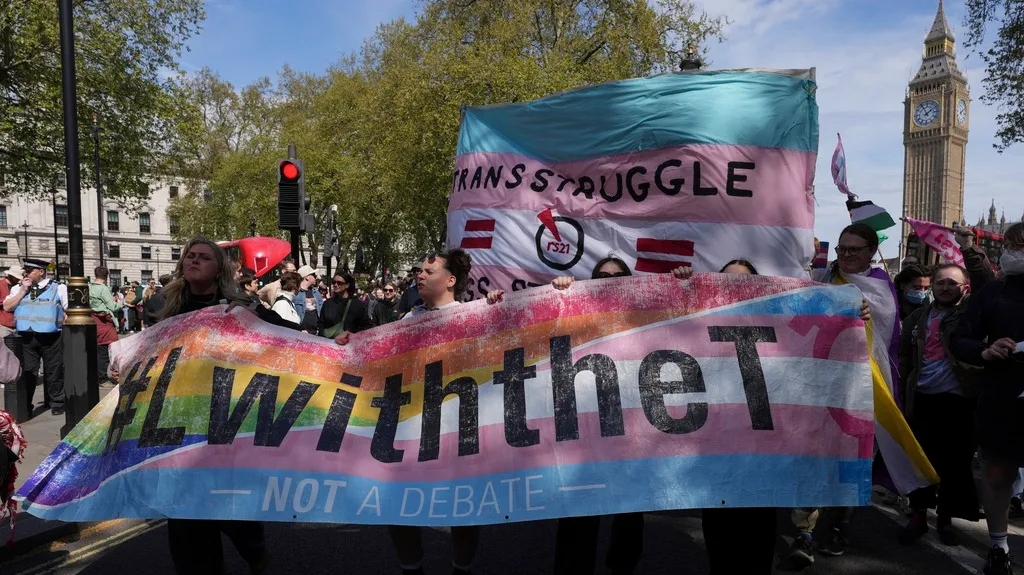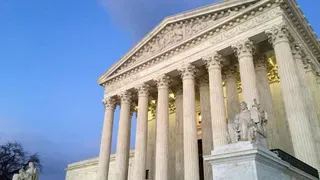June 3, 2023
As End of Session Nears, Louisiana Lawmakers Advance Controversial LGBTQ+-Related Bills
Sara Cline READ TIME: 3 MIN.
As Louisiana's legislative session nears adjournment, lawmakers in the Republican-dominated legislature pushed forward controversial LGBTQ+-related bills, including advancing a resurrected ban on gender-affirming medical care for transgender youths Friday.
Despite the state Constitution requiring lawmakers to focus on fiscal and budgetary matters this session, several bills that opponents say target the LGBTQ+- community – similar to GOP-authored legislation passed in statehouses across the country this legislative season – have become a contentious part of this year's culture-divide debates in Louisiana's Capitol.
One bill, which has received statewide and national attention, would prohibit hormone treatments, gender-affirming surgery and puberty-blocking drugs for transgender minors in Louisiana. So far, at least 18 states have enacted laws restricting or prohibiting gender-affirming care for minors, and all three of Louisiana's bordering states have enacted bans or are poised to do so.
Louisiana's bill was killed last week by a Senate committee – following nearly three hours of testimony and a decisive vote, in which a veteran Republican Sen. Fred Mills was the tiebreaker. After mounting pressure from Attorney General Jeff Landry, who is a GOP gubernatorial candidate this year, and the Republican Party of Louisiana, the Senate – in a rare procedural move – voted to recommit the controversial bill to a different committee, giving it a second chance at life.
The revived bill received unanimous approval during a brief six-minute Senate Judiciary Committee A hearing on Friday. All three Democratic members were noticeably absent.
The proposed ban still needs to be debated on the Senate floor, where it is likely to receive approval, and then go back to the House because of an amendment that pushes back the effective date to Jan. 1, 2024.
If that happens, the measure would be sent to the desk of Gov. John Bel Edwards, a Democrat who opposes it. Edwards has not said whether he would veto the bill. But if he does, lawmakers could convene a veto session to try to override the Democrat's decision.
Opponents of the ban argue that gender-affirming care, which is supported by every major medical organization, can be lifesaving for someone with gender dysphoria – distress over gender identity that doesn't match a person's assigned sex. Advocates for the LGBTQ+ community fear that without the care, transgender children could face especially heightened risks of stress, depression and suicidal thoughts.
Proponents of the legislation argue that the proposed bans would protect children from life-altering medical procedures until they are mature enough to make such serious decisions.
Scheduled for debate and final passage consideration is a bill that would require public libraries to create a card system that would prevent children from checking out "sexually explicit material" unless they have parental approval. The legislation would also allow parents to bring books they feel are inappropriate to a local board for review of the material.
Republicans, including Landry who is a staunch surpporter of the bill, argue that legislation limiting access to certain content is not meant to target the LGBTQ+ community, but rather to protect children from accessing inappropriate material and strengthening parental rights. Across the aisle, however, opponents say this is another attack on the community's existence and that it addresses an issue that is not an immediate problem and could result in censorship.
From Florida to North Dakota, bills seeking to ban certain books, make challenging literature easier or limiting minors' access to the material are being debated.
Earlier this week, lawmakers advanced a bill that would broadly ban K-12 public school employees in Louisiana from discussing sexual orientation or gender identity in the classroom. The legislation, which critics refer to as "Don't Say Gay", will be debated on the Senate floor.
A similar measure, that would require teachers to use the pronouns and name that align with a student's sex assigned at birth, also advanced to final passage. Under the legislation a parent can give written consent to do otherwise. However, a teacher can override the parent's request if it goes against their own religious or moral values.
Lawmakers must adjourn the 2023 legislative session no later than Thursday evening.







